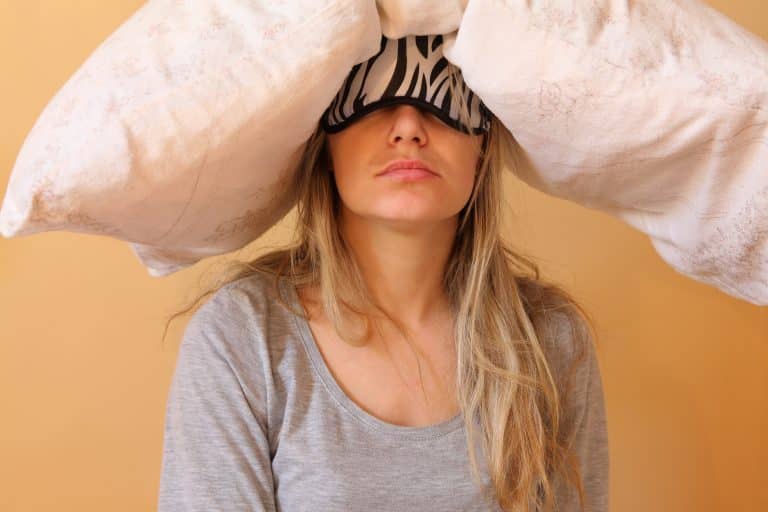Better Sleep A Foreign Concept? Not Any More
Sleep is arguably the most important aspect of your health. During sleep we enable adequate time to remove toxic by products in our brain which is required to prevent conditions such as dementia. Normal liver function is dependent on sleep to build and synthesize cells. Growth hormone production occurs while we sleep to build muscle cells and repair injured cells. Adequate sleep will normalise our appetite by controlling the hormones leptin and ghrelin. These hormones control the feeling of hunger and tell us when we have had enough to eat. Therefore when we do not have enough sleep it can lead to weight gain due to an abnormal appetite.
If you lay awake in bed stressing about particular things or you are finding yourself waking through the night, here are 6 steps to follow to improve your sleep!
1. Move Your Body For Better Sleep
Make time for exercise! Physical activity has amazing health benefits such as improving mood and reducing stress levels. In regard to how exercise directly improves sleep still remains under investigation. Experts suggest that it may be due to the strong correlation between sleep disturbance and conditions such as depression and anxiety. Results from research show us that regular exercise has positive effects on these conditions which could be why there are similar effects from exercise on insomnia and non restorative sleep. If you are not a regular exerciser please know that a one off weights session or boxing class is not likely to have a immediate benefit. Research has identified that a regular exercise program may take several weeks to show significant improvement in sleeping patterns. However your initial session will be a great stress reliever and you will feel better as soon as you finish, so talk to your exercise professional to commit to mind and body benefits today!
2. Limit Your Coffee For Better Sleep
It is a well known fact that a cup of coffee will stimulate and provide a temporary energy boost. Caffeine inhibits adenosine activity which is a neurotransmitter that allows us to fall asleep. Caffeine effects this neurotransmitter in two ways preventing us from falling asleep and also affects the quality of the sleep. Caffeine stays in our system for long periods of time and there may still be approximately 12.5mg of caffeine 20 hours after drinking 200mg of caffeine. If you struggle severely with sleep, try to gently remove coffee all together. Gentle removal is advised to prevent caffeine withdrawals. If you cannot give up your daily caffeine boost make sure you are drinking it for enjoyment rather than to wake up and be sure to consume as early in your day as possible.
3. Drink More Water For Better Sleep
Almost every client I see admits to not drinking enough water daily. It is one of the most easiest and cost effective things to do but yet we all seem to struggle with reaching out required intake. Dehydration can affect the ability to detoxify our blood as well as impact the natural circadian rhythm in the body leaving us energetic when we should be retiring to bed. The brain is protected by outer membranes which consist of fluid and during dehydration, these membranes loose moisture and cause headaches. Water intake does depend on the individual and their level of activity but 8 glasses daily is the recommended intake. As a general guide drink water gradually throughout the day and do not let your urine be completely clear.
4. Food For Thought For Better Sleep
Tryptophan is a very important amino acid which converts into the hormone serotonin after consumption. Serotonin works very closely with sleep inducing hormone melatonin as well as noradrenalin and dopamine encouraging relaxation and positive emotional changes. It is essential to consume tryptophan rich foods regularly to ensure these processes for relaxation and sleep occur effectively. Tryptophan rich sources include spinach, cottage cheese, shellfish, bananas, kiwi fruit and pineapple.
5. Switch Off Your Phone For Better Sleep
Research has been showing us all the harmful effects of our increased use of mobile phones, laptops and tablets. One of the worst things we can do before we close our eyes is check our Facebook or emails. The radiation emitted from mobile phones has been suggested to activate the stress response within the brain causing alertness which in turn affects the ability to fall asleep. Aside from this checking emails or seeing something on Facebook that causes emotional stress or anxiety will cause the individual to think about this right before they close their eyes. Aim to check your phone for the last time at least 20 to 30 minutes before bed.
6. Eat A Small Dinner Early
Eating early allows your digestive system to breakdown the food and assimilate nutrients before you lay down to sleep. Eating a large meal stimulates production of digestive secretions and promotes blood flow to the stomach and intestines. Our metabolic system is programmed to be slowing down before bed so eating a meal late will stimulate it to start working again. The energy absorbed from the meal can also cause a surge in energy as blood sugar levels are elevated which can prevent you from falling asleep and staying asleep. Eat early and sleep well!





